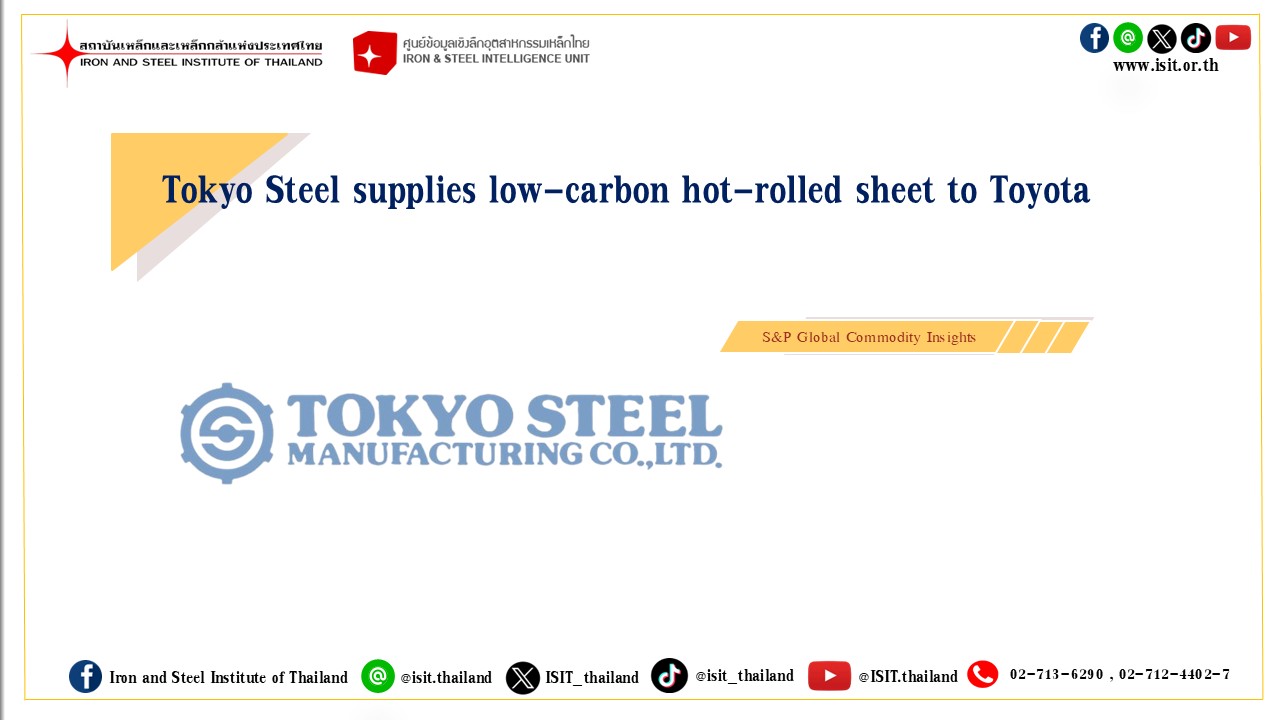
Tokyo Steel Manufacturing announced that its pickled hot-rolled sheet has been adopted in several vehicle models in production at Toyota Motor Corp. Nov. 11, in a statement seen by Platts, part of S&P Global Commodity Insights.
The pickled sheets are manufactured in an electric arc furnace with 100% ferrous scrap as raw material, with carbon emissions of around 400 kg/mt of steel produced.
According to the statement, the carbon emission intensity is only about one-fifth of that by the blast furnace route. Traditionally, the EAF route is less favored in automotive steel sheet production due to concerns regarding component management and quality stability.
Tokyo Steel said that while there are cases when automotive steel sheets are made from EAFs, ferrous scrap, together with pig iron, often have to be used as feedstocks.
Tokyo Steel came with a "Car to Car" recycling initiative that makes use of scrap from automotives, e.g., bushing scrap generated in the production process and shredded scrap, to produce automotive steel.
By upgrading its scrap recycling and steel manufacturing technology, Tokyo Steel managed to use scrap only for automotive steel sheets production, with steel strength up to 590 MPa.
This is part of Tokyo Steel's Green EV Steel Business Promotion, which aims to achieve mass production supply by the fiscal year 2025.
Tokyo Steel has announced an emissions reduction roadmap called Tokyo Steel EcoVision 2050, which seeks to reduce carbon emissions in scope 1 and 2 by 60% by 2030, and achieve virtually zero emissions in scope 1 and 2 by 2050.
Branding its low-carbon steel as "Ensō" for the global market and "Hobo Zero" ("Approximately Zero") for the domestic market, Tokyo Steel cut its carbon emissions at the steel manufacturing stage to a range of 100-400kg/mt of steel produced.